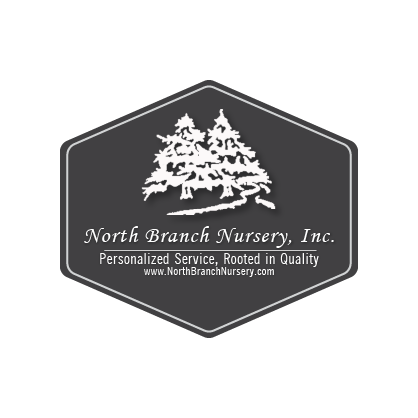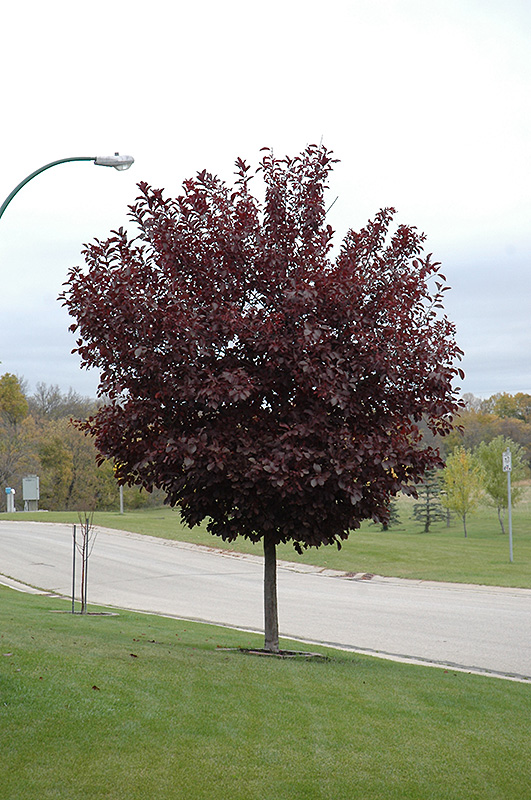Looking for a particular Plant? Try our Plant Finder Tool.
Canada Red Select Chokecherry
Prunus virginiana 'Canada Red Select'
Height: 20 feet
Spread: 15 feet
Sunlight:
![]()
Hardiness Zone: 2a
Other Names: Common Chokecherry
Description:
A vigorous and hardier form of Canada Red chokecherry; foliage is a darker reddish purple with a thicker leaf texture; also known for its straight trunk and more uniform top; must have good drainage and aeration
Ornamental Features
Canada Red Select Chokecherry features showy chains of fragrant white flowers hanging below the branches in mid spring. It has attractive deep purple deciduous foliage which emerges green in spring. The oval leaves are highly ornamental and turn an outstanding red in the fall. The fruits are showy dark red drupes with black overtones, which are carried in abundance in mid summer.
Landscape Attributes
Canada Red Select Chokecherry is a deciduous tree with a more or less rounded form. Its average texture blends into the landscape, but can be balanced by one or two finer or coarser trees or shrubs for an effective composition.
This is a high maintenance tree that will require regular care and upkeep, and is best pruned in late winter once the threat of extreme cold has passed. It is a good choice for attracting birds to your yard. Gardeners should be aware of the following characteristic(s) that may warrant special consideration;
- Suckering
- Disease
Canada Red Select Chokecherry is recommended for the following landscape applications;
- Accent
- Shade
Planting & Growing
Canada Red Select Chokecherry will grow to be about 20 feet tall at maturity, with a spread of 15 feet. It has a low canopy with a typical clearance of 4 feet from the ground, and is suitable for planting under power lines. It grows at a medium rate, and under ideal conditions can be expected to live for 40 years or more. This is a self-pollinating variety, so it doesn't require a second plant nearby to set fruit.
This tree should only be grown in full sunlight. It does best in average to evenly moist conditions, but will not tolerate standing water. It is not particular as to soil type or pH. It is highly tolerant of urban pollution and will even thrive in inner city environments. This is a selection of a native North American species.



